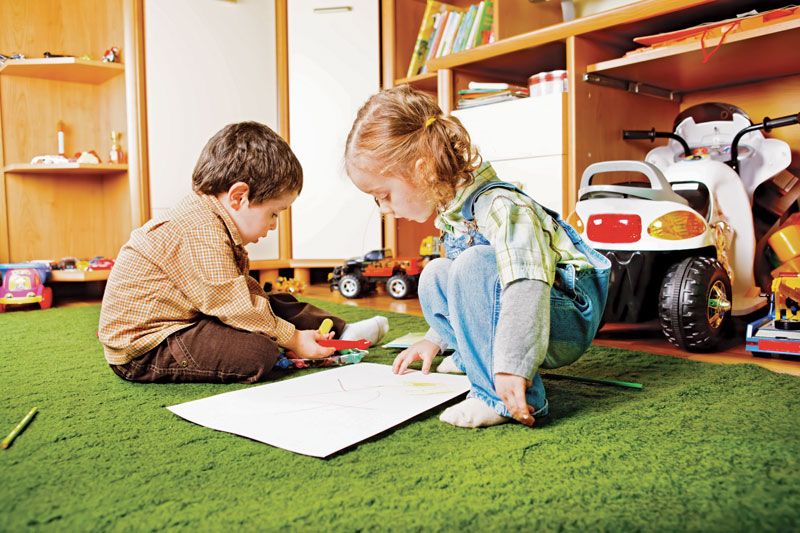The progression from childhood to adulthood marks a pivotal phase in an individual’s moral development. In the Bahá’í perspective, this journey is not arbitrary; rather, it is a meticulously orchestrated series of stages illuminated through the teachings of Bahá’u’lláh. The intrinsic moral compass, which is cultivated and refined throughout the various epochs of life, is instrumental in shaping one’s character and societal contributions.
1. The Innocence of Childhood
In the foundational years of life, children exhibit a remarkable innocence. This period is characterized by an innate purity, where moral and ethical understandings are nascent yet profoundly impactful. Bahá’í teachings emphasize the importance of nurturing this innocence, advocating for a learning environment steeped in love and companionship. The role of parents during this epoch cannot be overstated; they serve as primary moral guides, modeling behaviors and values that will form the bedrock of the child’s ethical framework.
Children, in their candid interactions, mirror the virtues they observe. They embody trust, kindness, and honesty—traits that should be celebrated and reinforced. It is during these formative years that the seeds of morality are sown, with experiences and observations acting as fertilizers for their growth. Thus, parents and educators are encouraged to be vigilant custodians of this sanctity, ensuring that the messages imparted are congruent with the overarching moral principles espoused by the Bahá’í Faith.
2. The Role of Education in Moral Development
Education emerges as a critical pillar in moral upbringing. The Bahá’í writings illuminate the necessity of an educational system that transcends mere academic achievement, venturing into the realms of character and virtue formation. The synergy of knowledge and moral education is paramount; as children learn about the world, they should concurrently engage with principles of justice, compassion, and integrity.
Moreover, Bahá’í teachings assert that effective moral education must be spiritually oriented. This approach engenders a holistic understanding of morality that resonates with the child’s inner being, fostering a sense of responsibility not only toward themselves but also toward their community and the global family. Lessons that intertwine moral ideals with academic subjects allow for a well-rounded development, equipping youngsters with the philosophical tools necessary for discerning ethical dilemmas.
3. Adolescent Exploration and Identity Formation
As children mature into adolescence, a critical transformation occurs. This period is replete with exploration, identity formation, and a burgeoning awareness of social complexities. It is also a stage ripe with existential inquiry—young individuals grapple with questions about purpose, belonging, and ethical beliefs. The Bahá’í perspective posits that this turbulence can yield profound insights, provided the youth are supported adequately through guidance and mentorship.
Encouraging critical thinking becomes essential during this phase. Bahá’ís advocate for fostering an environment where questions and discussions about morality are welcomed. This dialogic engagement aids adolescents in reconstructing their moral beliefs, allowing them to navigate the nuanced labyrinth of ethical considerations. It is through this reflective process that they develop a robust identity grounded in a personal understanding of truth and righteousness.
4. The Transition to Adulthood and Moral Responsibility
The transition from adolescence to adulthood marks a significant leap into a sphere where moral responsibility becomes paramount. Young adults are called to apply their accumulated knowledge and ethical reflections in real-world contexts. Bahá’í teachings emphasize the importance of service to humanity, framing this responsibility not merely as an obligation but as an opportunity for spiritual growth and realization.
During this stage, individuals must confront various moral challenges and dilemmas that society presents. Arguably, the decisions made in these moments serve as crucibles for character formation. The Bahá’í approach encourages individuals to act with integrity, virtue, and a commitment to justice. Ethical behavior is not governed solely by adherence to laws but is deeply rooted in one’s moral convictions and the well-being of others.
5. The Lifelong Journey of Moral Development
It is essential to recognize that moral development is not confined to childhood or adolescence; it is a lifelong journey. Bahá’í philosophy posits that as individuals evolve, so too does their comprehension of morality. The experiences gleaned throughout life continually inform one’s ethical beliefs and actions. Thus, moral maturity involves an acceptance of the evolving nature of one’s understanding, as well as the acknowledgment that continuous learning is vital for personal growth.
Moreover, the intergenerational dialogue that occurs within families and communities serves as a crucial mechanism for moral development. Engaging with diverse perspectives allows individuals to reassess and refine their own values, creating a more compassionate and educated society. Bahá’í teachings underscore the necessity of this exchange, as it promotes unity and understanding among various cultural and ethical paradigms.
Conclusion
The moral landscape from childhood to adulthood is one painted with vibrant colors, shaped by familial influences, educational initiatives, and communal engagements. The Bahá’í approach encapsulates a holistic framework that seeks to guide individuals towards an ethical path marked by service, integrity, and unity. In nurturing the moral fabric of society, we embark on a collective endeavor toward a more just and compassionate world, heralding a future where the ideals of Bahá’u’lláh resonate through the actions of every individual.
